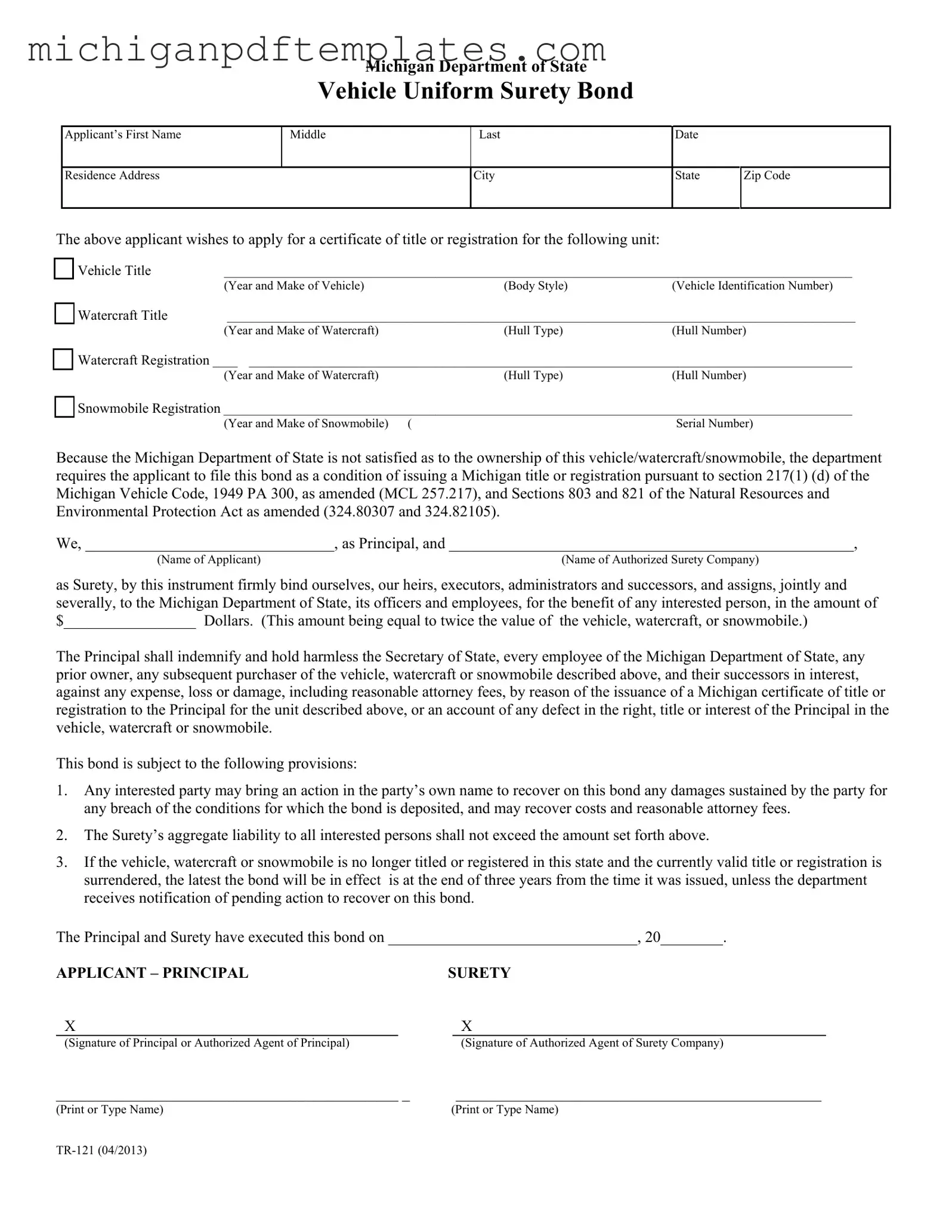Fill in Your Michigan Tr 121 Form
The Michigan TR 121 form is a Vehicle Uniform Surety Bond required by the Michigan Department of State. This form is necessary when an applicant seeks to obtain a certificate of title or registration for a vehicle, watercraft, or snowmobile without a clear record of ownership. Filling out this form correctly is essential to ensure compliance with state regulations.
Start your application process by filling out the Michigan TR 121 form. Click the button below to get started.
Get Your Form Now

Fill in Your Michigan Tr 121 Form
Get Your Form Now

Get Your Form Now
or
▼ PDF Form
Finish this form quickly and move on
Fill in and complete Michigan Tr 121 online quickly.